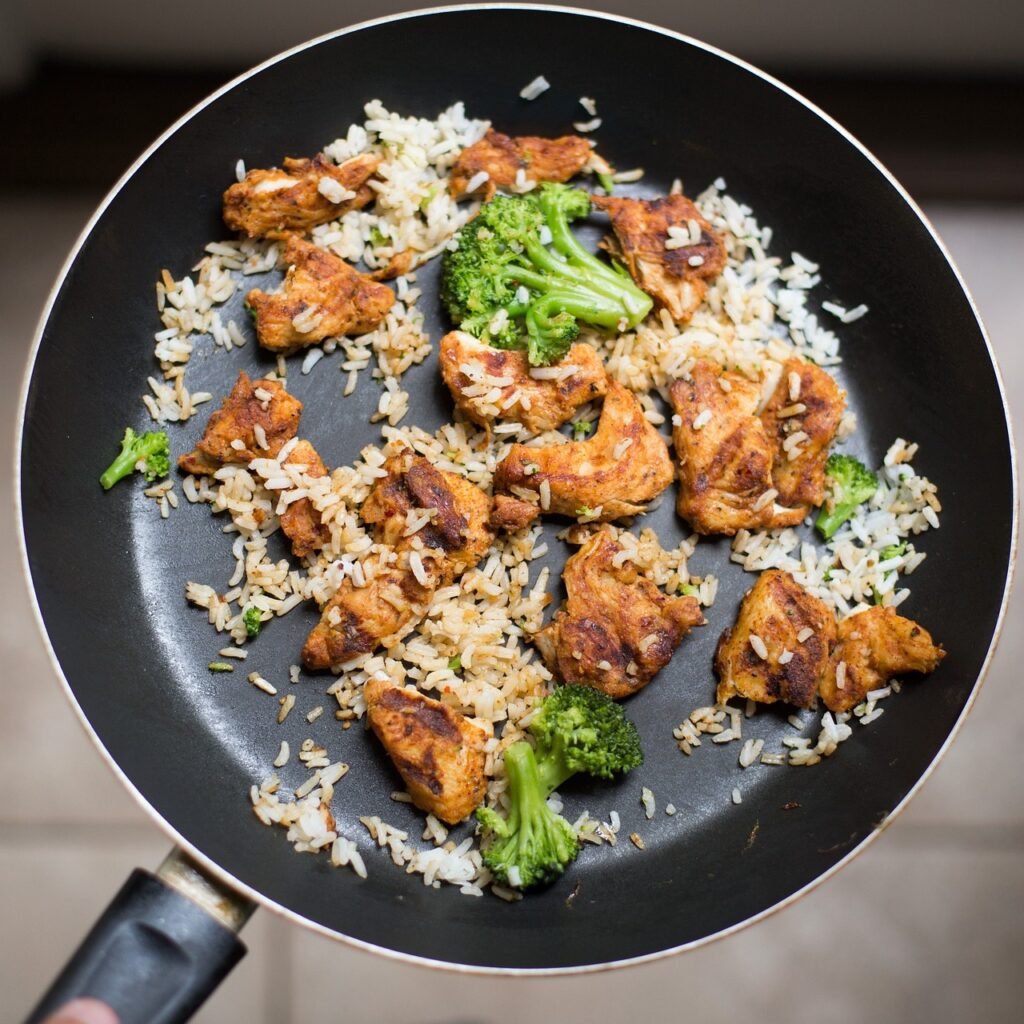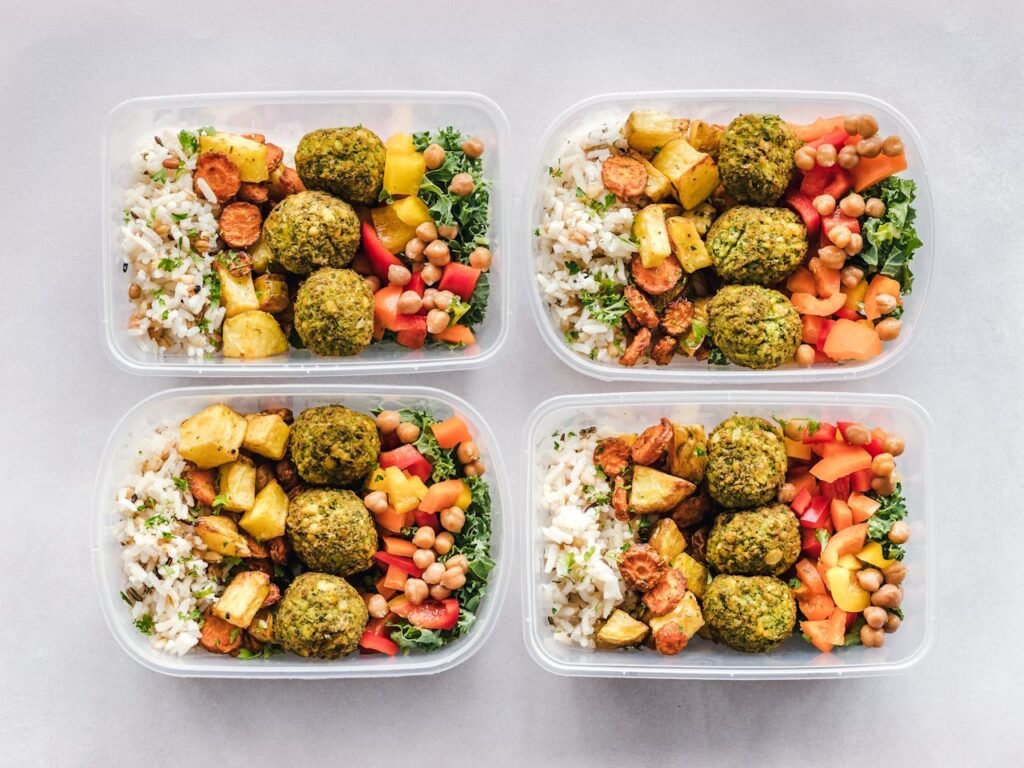Diet is one of the most important or key factors that dictates the result of an individual’s fitness journey. When you hear the word “DIET,” what is the first thing that comes to mind?
The most common answer will be food restrictions. However, it is not the right answer, and it is not only you; almost 80% of people have the same perception as the word “diet” became popular for cutting food.
The actual meaning of diet is simple: it is the food an individual eats. The food that you eat is your diet. Based on your food choices, it can be classified as a good diet or a bad diet.
Now that we understand what diet means, let us start to discuss the mistakes beginners make that may hamper the progression of their fitness journey.
Top 5 diet mistakes
In this article, we will go through the common mistakes that almost every beginner makes that cause more harm to their fitness journey than good. We will not only talk about the reasons for this but also provide solutions to the mistakes.
Excessive cutting on foods
Our body does not work like a machine; it takes time to form a habit or adapt to changes. The most common mistake beginners make when they want to lose weight is to start doing “crash diets” from the very first day, which is a very bad idea. You may ask why it is a bad idea.
The answer is that it will not be sustainable in almost 9 out of 10 cases. There is a popular phrase: “Fitness is a marathon, not a 100-meter sprint.” In the beginning, when you start, you can do crash dieting for a week or over a month because your motivation level will be high at that time. After that, you will feel burned out, and your body will feel weak as you deprive yourself of food. Your hormones will not be happy, and you will be in a bad mood throughout the day. You did not give your body enough time to adapt to changes, so you will suffer.
For example, you used to eat a bowl of rice for lunch, and suddenly, you started eating a spoonful of rice for lunch. The massive deficit of food you create will make you hungry throughout the day, and there is a high chance that at a certain stage, the hunger will grow so much that you binge eat more calories than you consumed before.
In this case, the best thing would be to gradually cut or lower the food volume. Do portion control.
Do not start a crash diet, Gradually lower the food portion weekly or every two weeks. It will not make you suffer, and you will be able to sustain yourself through it. Your body will get enough time to adapt, and your hormones will be happy.


Start eating bland foods
There is a perception that healthy foods should be bland, which is not true.
“Healthy food can also be tasty.” Food is a motivation, and who wants their motivation to be bland?
Many beginners in the initial stage make the mistake of thinking that to do well on their fitness journey, they also need to start eating boring foods.
There are always alternatives. We are not telling you to have unhealthy foods; we are telling you to find healthy options. Would you sustain if you only ate chicken, broccoli, and rice?
Chicken, broccoli, and rice are very healthy foods, without a doubt, but they are not very tasty on their own. Either you make them tasty in some healthy way, or you can eat tasty, low-calorie foods.
There are many options available in the stores. Without going for regular turkey, go for low-fat ground turkey or beef. Even low-calorie breads are available now. With these two items, you know what to do: make a sandwich that will be tasty and lower in calories.
If you do not enjoy it, you will not sustain your goal, which is reality. You can check out the following book, “The Ultimate Anabolic Cookbook,” in which you can find many healthy and tasty recipes.

Skipping Meals
Many of us think we will skip one meal and eat more on the next one so it gets balanced out. Usually, we do not understand that eating a bit more turns into binge eating and offsets the balance.
Your weight loss or weight gain depends on how many calories you intake throughout the day. Separating balanced meals throughout the day is much more efficient than having two or three big meals and then suffering from hunger for the rest of the day.
Many individuals skip breakfast, which is okay if you do not feel hungry in the morning. However, this is not for everyone. If you feel hungry in the morning, then there is no point in starving. By doing so, you can increase the chance of binge eating. Also, you can feel weak throughout that time as your system has no food to provide energy.
The recommended way is to equally distribute your daily calorie intake to each meal throughout the day. For example, if your daily calorie requirement is 2500 calories to lose weight; rather than having two big meals of 1250 calories, distribute the calories into 4/5 average-size meals. It will help you fight your hunger and give you enough energy throughout the day.
Not planning meals ahead
If you do not know how many calories you eat, how would you track your progress?
Most of us wake up in the morning, eat whatever is in the fridge, and then move on with life. It makes tracking calories hard as different foods have different calories, and if we do not know what we will eat, how would we measure our daily calorie intake?
Planning meals is one of the necessary things everyone should incorporate into their dietary habits. It helps us reach our fitness goals and saves us a lot of time.
If you are a working person, then on weekends, take a note and make a list of what you will eat for the next few days. If you have the required items to cook those foods, do batch cooking, organize the foods in equal portions, and keep them in the fridge in containers so that you do not need to cook for the whole week.
It will give you a clear idea of how many calories you consume daily. If you do that, then you do not need to make any more hunches about your daily calorie intake.
It will save you time and give you a proper idea about your diet, which you can use to modify accordingly to attain certain fitness goals.

Over/Underestimating Calories
In the fitness journey, many beginners face a reverse progression phase. You are trying to lose weight by eating in a deficit, but you are gaining weight and vice versa. How is this possible?
The simple answer is that you are either overestimating or underestimating the calories you consume daily. Yes, sometimes weight may fluctuate here and there, but if it shows no positive result over two weeks, then chances are you are making some mistakes in counting calories.
Do not worry; we will not tell you to do a complete breakdown of your food calories, as it is not a viable option. Most individuals make wrong calorie guesses as they do not consider the other sources that add extra calories to the food.
For example, you plan to eat a homemade chicken sandwich, which will be approximately 350–500 calories; adding sauces to it will give you an additional 100–150 calories.
If you are not estimating those calories, you will underestimate your daily calorie intake. Most beginners make this mistake.
Another mistake they make is to depend on food labels completely. Food labels often lie. If you need to make progress, cut some of the side items like sauces or go for low-calorie sauces.
No one can accurately predict the calories; it is a rough estimate everyone makes with experience. Over time, that estimate becomes much closer to the actual number.

If you find this article helpful, please let us know in the comments, and if there is any query, please contact us; we will try our best to respond.


1 thought on “Top 5 diet mistakes beginners make”
Pingback: Why you should not do rapid weight loss - Daily Fitnest